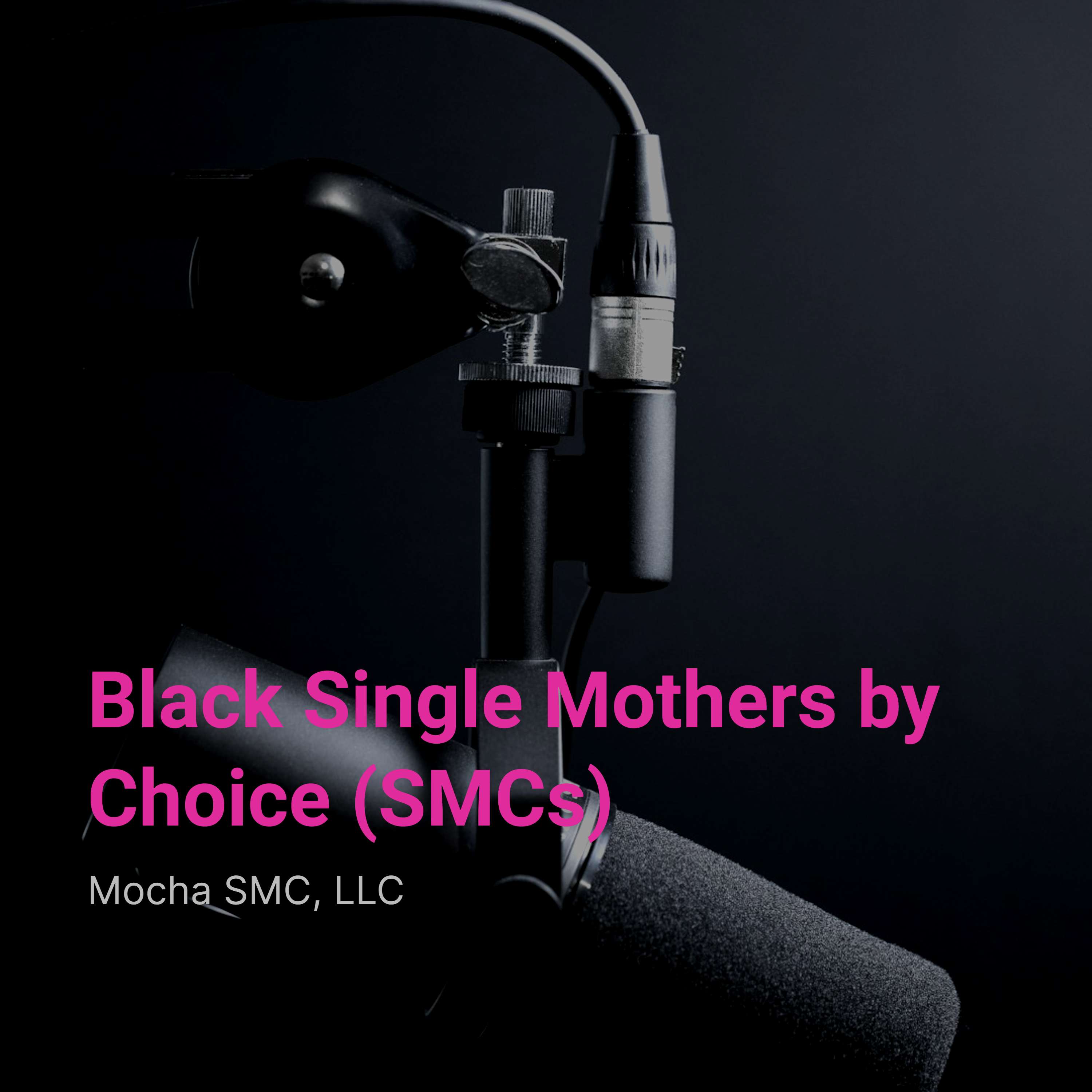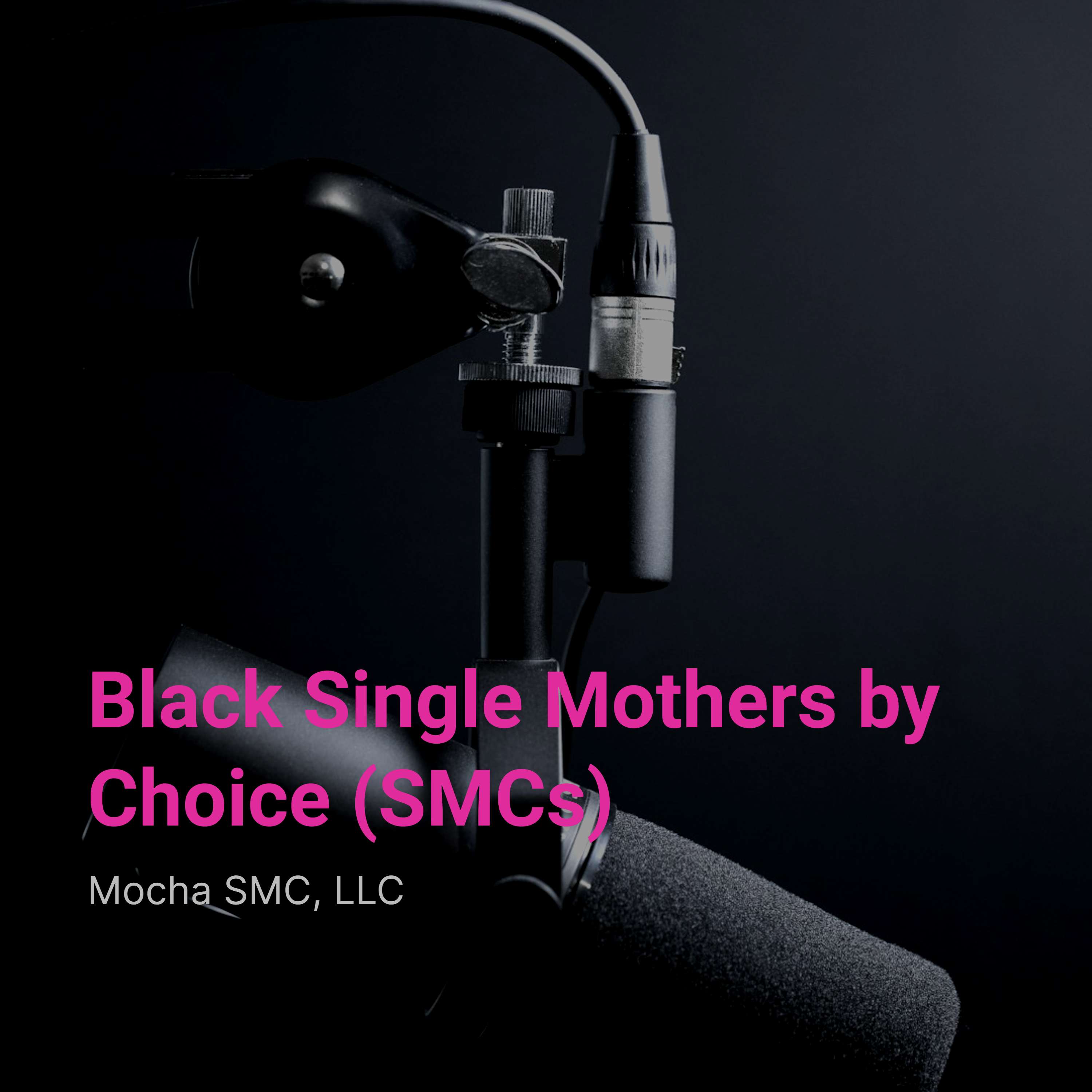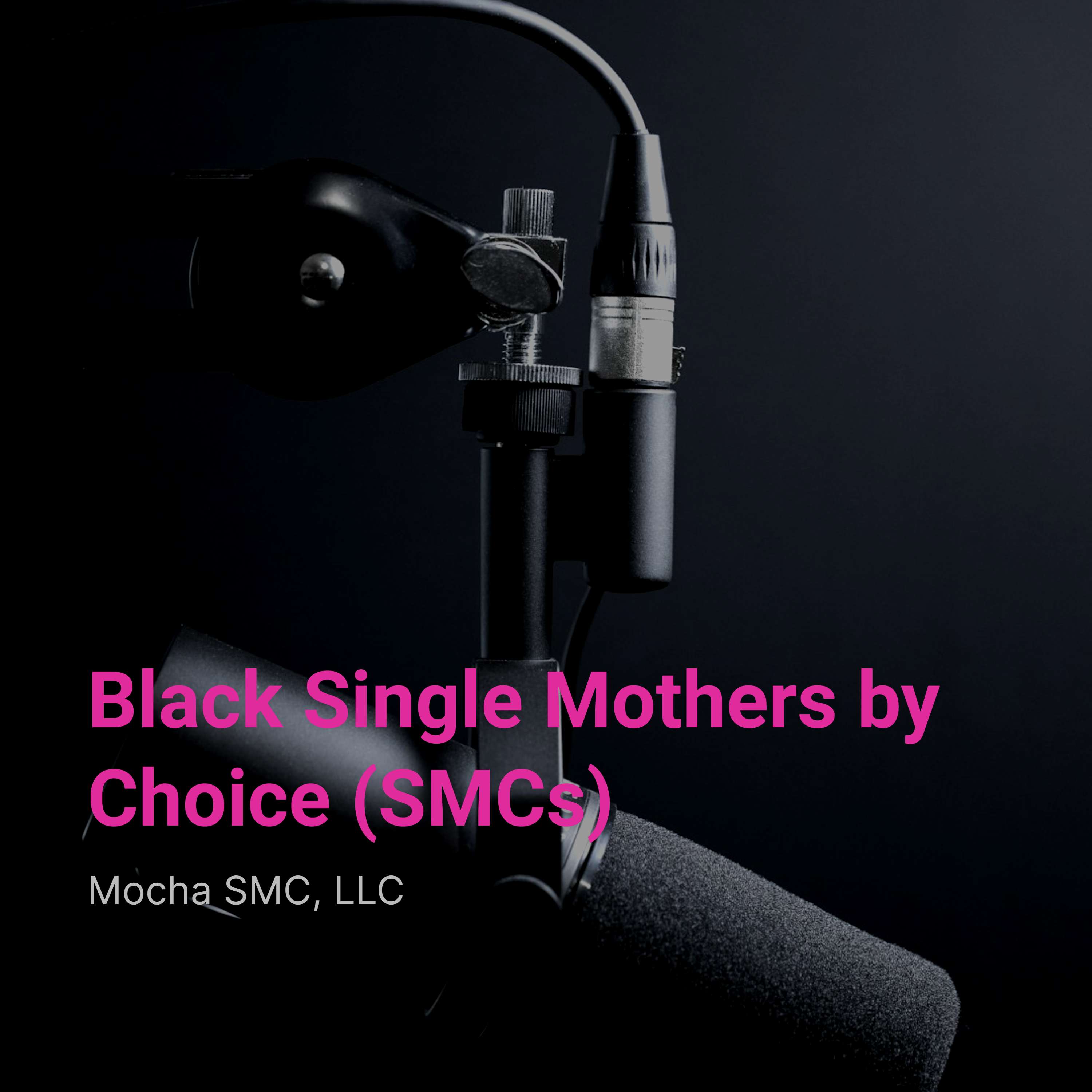[00:00:02] Speaker A: Hi, I'm Ayesha and I'm a former host of Mocha's single mothers by choice, or smcs like you. As an SMC, I decided to become a mother knowing I'd be the sole care provider and parent of my children. At least at the outset, the mocha stood for black. So I'm using the word black, and I'll be discussing being a single mother by choice from a black woman's lens. You'll connect with all the interesting and fun things about this non traditional path like this, discussing which sperm to use and some hard truths about fertility and the realities of dating as a single mother who doesn't have a co parent to rely on occasionally, and what it's actually like to parent as an SMC. This is the black single Mothers by Choice podcast.
Hi everybody. So for this episode, we are going to discuss two common ways that smcs conceive. One is through IUI and the other way is through IVF. But before we get into defining those two terms, I do want to have an upfront disclaimer that the information and what we're going to share are our opinions, unless otherwise specified. So we are going to root this episode in some data from CDC and some common resources. But I just want to state that upfront.
[00:01:21] Speaker B: So let's start with defining IUI versus IVF.
[00:01:24] Speaker A: So the definition of IUI, which stands for intrauterine insemination, is a fertility treatment that involves placing sperm inside the woman's uterus to facilitate fertilization.
[00:01:40] Speaker B: IVF stands for in vitro fertilization is a fertility treatment that involves removing eggs from the ovary and inseminating it with sperm in a petri dish outside the body. Then the fertilized embryo is transferred to the uterus. How does ici differ from Iui? ICI stands for intracervical insemination, and it's essentially where you go in through the vagina and place sperm as close to the cervix as possible. And ideally the sperm will swim into the uterus and fertilize the egg. With IUI, the sperm is placed directly into the uterus. What are the costs associated with a typical IVF cycle?
[00:02:11] Speaker A: A typical IVF cycle will cost anywhere.
[00:02:15] Speaker B: Between eleven and $18,000 per cycle. You can also purchase an IVF package. What are the chances of live birth by age group? The chances of a live birth if.
[00:02:24] Speaker A: You'Re in a 35 is 52%.
If you're between 35 and 37, it's a 38% chance of a live birth. If you're between 38 and 40, it's a 23% chance of a live birth. And if you're over 40, it's a 7.6% chance of a live birth.
[00:02:44] Speaker B: How old were you when you had your first very good questions age wise?
[00:02:49] Speaker A: I was 38 when I had my first. I was 39 and a half when I started trying for my second, and we didn't anticipate there was going to be a problem. The number of eggs I had was, you know, great for my age. I think it was like 2.01. So anytime a fertility doctor saw that, they were like, oh, that's great, this will be easy. I had two vials of my daughter's.
[00:03:07] Speaker B: Donor pre purchase and storage.
[00:03:09] Speaker A: I did two IUI before I switched to IVF because I didn't get pregnant at all. And so my doctor and I were certain that it was just a matter of time trying to find the right egg.
[00:03:21] Speaker B: Did you encounter any difficulties when switching to IVF?
[00:03:24] Speaker A: I did not, but I do have two more data points to discuss before we jump into those details. Just to compare IUI and IVF, here are two things that I found out about the data. One, it's hard to find data just on IUI, and so I had to go to a specific fertility clinic. When I talked about the resources that I used, I had to use a particular clinic to capture IUI stats and then the race component. So it was really hard to find stats broken down by race. Now, what I started to find in more recent articles and more recent research is that it's starting to change. There are sites out there, there are organizations out there who are specifically trying to capture this data. So interesting stuff to come.
[00:04:14] Speaker B: All right, what are the success rates between IUI and IVF based on age?
[00:04:18] Speaker A: The last data point is success between IUI versus IVF. So if you're under 35 IUI versus IVF, you have a 15% chance of getting pregnant per IUI cycle, a 54% chance per IVF cycle.
For the age group 35 to 37 IUI, you have a 10% chance per cycle. For IVF, you have a 40% chance of success, which equals a live birth for 38 to 40. For IUI, you have an 8% chance versus a 28% chance with IVF. And then if you're over 40, you have a 9% chance with IVF using own eggs.
[00:04:59] Speaker B: Did you discover anything surprising in your research?
[00:05:02] Speaker A: What I found interesting. So you can get an anonymous donor.
[00:05:06] Speaker B: Or you can get it with OpenID.
[00:05:07] Speaker A: And from what I saw, OpenID was more expensive and then education background became more expensive the further you went up in education. So bachelor's, master's, PhD. I it got more expensive the more.
[00:05:23] Speaker B: Educated the donor was, which I thought was interesting.
[00:05:28] Speaker A: So sperm is expensive and IUI procedures are expensive. To what extent did cost factor into your decision of conception path firm or any of this? Well, I will say finances did play into it for maze. They paid out of pocket for maybe 80% because my insurance did cover anything that fell under diagnostics and then any medications that had an alternative use where.
[00:05:57] Speaker B: Fertility application was an alternative use and.
[00:06:00] Speaker A: Not its primary use. So some of the meds are used for other things.
[00:06:04] Speaker B: Explain your financial experience with fertility treatments.
[00:06:07] Speaker A: For my first child, I concede using IUI on my second try, so it was nothing the financial hit that it could have been. I purchased one vial of sperm and so we were good. Easy peasy. Second time around, I had exhausted everything. Now, I will say I had always been fairly frugal and always saved for a rainy day. And I worked a second part time job and saved up that money. So I had money reserves to pull from, but I had no idea the extent of the reserves. And I remember crying to myself when the first IUI didn't work. Like, what if the second one doesn't work? I can't afford IBF, so my daughter was one when I started trying for the second and my insurance didn't cover anything. So I had to be real creative about how I went about finding funds to finance my second try. And so I used a combination of savings, 401K loan, low interest credit cards, and so I just did the best that I could.
[00:07:06] Speaker B: Did fertility costs impact your other financial plans? Say having children is a gamble, like.
[00:07:11] Speaker A: You'Re not going to get a real return on investment. If you're looking for monetary, there's not always a rhyme or reason. But I will say you really want to think about tapping into those alternative resources and exhausting your savings. Because once baby is here, you only get more bills and more expenses on top of that. Because child care doesn't stop. You still need to work, right? Groceries will double. Babies need clothes, they need gear, they need all of this stuff. So you have to make sure whatever financial moves you're making in order to have this baby that you can also pay for everything that comes with that baby afterwards. And I don't have a windfall inheritance that was never coming my way. And so when I looked at 401K loans and additional consumer credit card debt, I had to be able to be sure that I could pay child care. I needed to make sure that I was able to sustain the finances of my household while pursuing SMC hood. So for me, as I got further into the three years, I really had to have heart to heart conversations with myself.
[00:08:20] Speaker B: What improvements do you hope to see for black women and fertility treatments?
[00:08:24] Speaker A: Hopefully we start to make this proactive investment in improving IVF success rates for black women. We will talk about that when we get to the medical side and advocacy side of being a black SMC. Hopefully we start to see trends where we can work with doctors who look like us. There's a change in how we're treated in our success rates in other fields of medicine, hoping that we see similar success rates if we start working with doctors and fertility specialties that look like us so they tend to hear our concerns differently.
[00:09:00] Speaker B: Well, hopefully you found this to be another informative episode. Thank you for tuning in.
[00:09:05] Speaker A: Bye now.
[00:09:06] Speaker B: Well pod, thank you so much for.
[00:09:07] Speaker A: Taking the time to listen. If you like what you heard, please share this podcast with your girlfriends and I'd love to hear your thoughts about the topics covered in this episode. So email
[email protected] and if you found value in the topics covered, consider making.
[00:09:23] Speaker B: A donation using the link in the show notes below.
[00:09:26] Speaker A: Till next time, Pod. Bye now.


